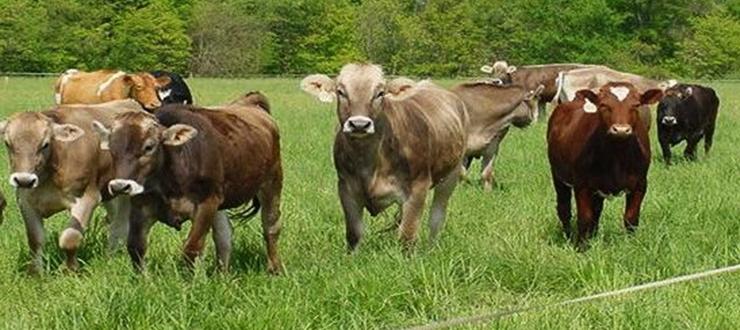
Grazing management is an extremely important topic that deserves serious consideration by any profit-oriented livestock producer. There are numerous benefits associated with good grazing management, including (but not limited to) the following.
Higher Percentage Of Pasture Forage Utilized
Research has clearly documented that the percentage of pasture forage that ends up being consumed by grazing animals increases as the level of grazing management increases. With management-intensive grazing, utilization can be increased by as much as 20 to 30% in some cases.
More Forage Produced
Plants are likely to produce more forage under good grazing management. Leaves are the food production factory of forage plants. One of the goals of grazing management should be to manage grazing in such a manner that there is always enough leaf tissue present to allow good interception of sunlight, but to minimize the number of old, marginally productive leaves.
Better Nutrient Recycling
Good grazing management forces grazing animals to spend more nearly equal amounts of time in various parts of pastures. This results in more even distribution of urine and manure, which are major sources of nutrients.
Higher Quality Pasture Forage
The forage quality of young, tender pasture growth is almost always high (less fibrous than older growth). Proper grazing management that maintains a higher percentage of young forage in a pasture helps ensure that pasture forage quality will be high.
Fewer Weeds
Removal of leaves is a major stress factor for plants of any type. As grazing management is intensified, animals have less opportunity to selectively graze, which results in many weeds being grazed (incidentally, many weeds that livestock don’t prefer have surprisingly good forage quality). Many weed species are put at a severe disadvantage if defoliated on a regular basis.
Less “Spot Overgrazing” Of Desirable Plants
Good grazing management allows a rest period for highly desirable forages, which increases their competitiveness. A pasture where there is a good deal of forage present and that don't at first glance appear to be overgrazed may actually be overgrazed to some extent if animals are selectively consuming certain desirable plants.
Facilitation Of Legume Management
Legumes offer many benefits, but, they generally require a higher level of management than grasses. Legume plants, especially young legume plants, are often outcompeted by companion species. Exercising good grazing management can favor establishment and persistence of legumes. The extent to which this is true varies with different legume species.
Stronger Plant Root Systems
When plants are grazed too closely, root growth stops or is severely reduced. Grazing management that avoids this problem favors large root systems that make plants more resistant to drought and other stresses, thus tending to result in healthier forage plants and to lengthen the number of calendar days of grazing.
Improved Soil Quality
Pastures that are never overgrazed and in which plants and their root systems are healthy and vigorous will, in the long run, tend to have more organic matter, be less compacted, and allow better water infiltration.
Foraging Ahead is a column presented by Ragan & Massey and written by Dr. Don Ball, Professor Emeritus at Auburn University. Dr. Ball is one of the authors of the popular book “Southern Forages,” which can be found via a computer search that uses the words, “Southern Forages, The Fertilizer Institute.”
